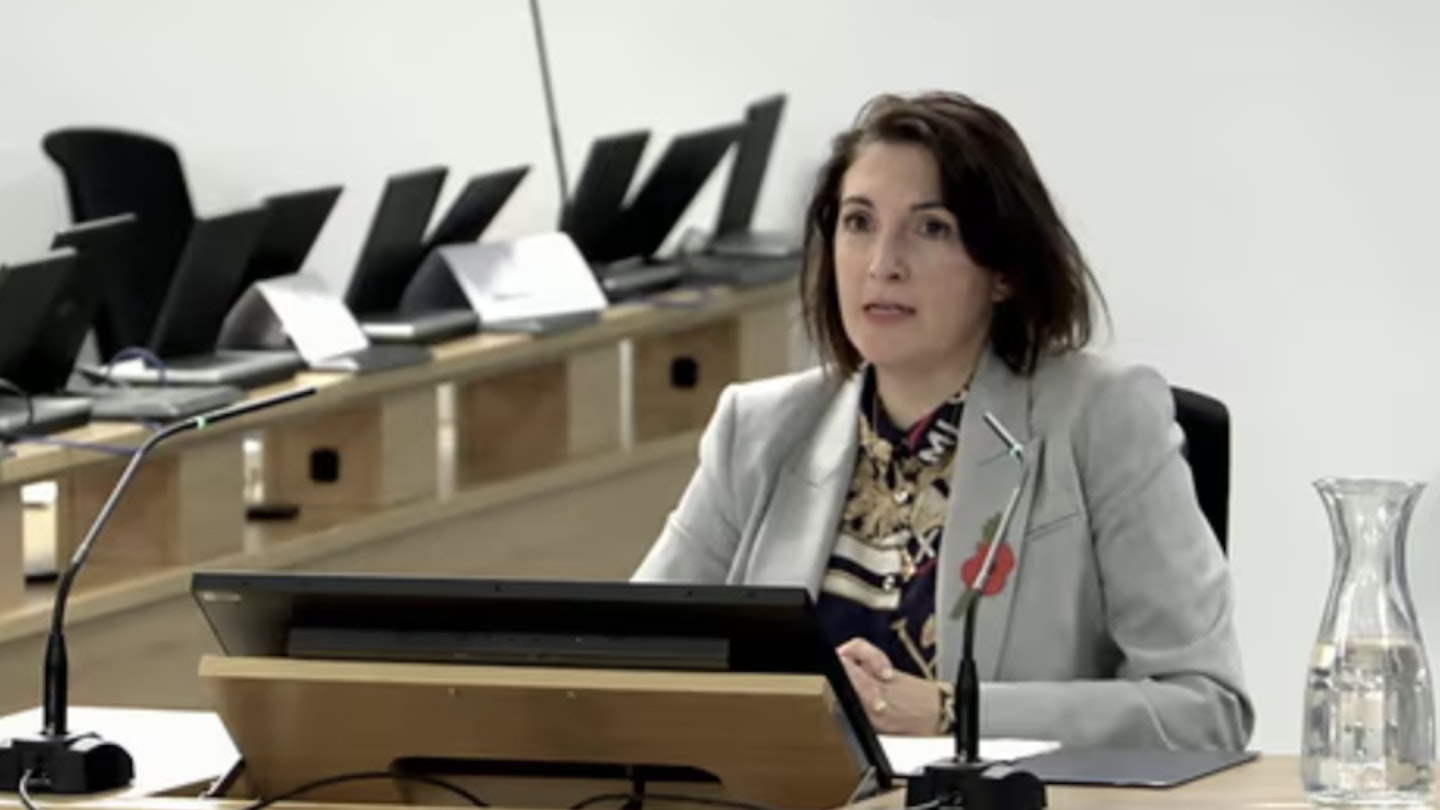For many women the evidence given at yesterday's Covid-19 Inquiry will have felt brutal but vindicating to hear, as senior civil servant Helen MacNamara took the stand.
MacNamara was deputy cabinet secretary - one of the UK's highest-ranking officials and yesterday spoke to her experience as one of few women in power at the time of the covid crisis and the affect that in turn had on policies.
MacNamara said there was a toxic environment under PM Boris Johnson and his advisor Dominic Cummings and that female civil servants 'became visible overnight'.
She spoke about issues around PPE not fitting females - even though the majority of medical staff wearing and needing them were female - how domestic violence was not considered and that there was a 'lack of thought' around school closures and that there was a 'lack of guidance' for pregnant women and mothers, while 'more male pursuits' had a 'disproportionate amount of attention'.
Joeli Brearley, CEO of Pregnant Then Screwed (who campaigned vigorously for birth partners to be allowed at scans, appointments and births and for better information around the covid vaccine) said: 'Finally someone who was on the inside has confirmed what we knew all along - they forgot about women, because those who made the decisions were men.'
The Covid-19 inquiry yesterday heard that MacNamara had bought officials and advisers copies of Caroline Criado-Perez's book, Invisible Women in a bid to educate them on how gender bias could negatively affect women and their health.
The restrictions around birth and pregnancy care seemed unnecessarily restrictive and were comparatively slow to adapt.
Helen Macnamara
She wrote in her evidence: 'The exclusion of a female perspective led to significant negative consequences, including the lack of thought given to childcare in the context of school closures. There was a serious lack of thinking about domestic abuse and the vulnerable, about carers and informal networks for how people look after each other in families and communities. There was not enough thinking about the impact on single parents of some of the restrictions.
'There was a disproportionate amount of attention given to more male pursuits in terms of the impact of restrictions and then the lessening of the same (football, hunting, shooting and fishing). There was a lack of guidance for women who might be pregnant or were pregnant and what those who were key workers should do (this was particularly significant in education and the NHS given the demographics of their workforces). The restrictions around birth and pregnancy care seemed unnecessarily restrictive and were comparatively slow to adapt. I never understood this.'
Speaking about yesterday's evidence, Brearley said: 'The evidence to the covid enquiry from senior civil servant, Helen McNamara vindicated everything that we campaigned on in the pandemic.
'Women were ignored - whether you were pregnant, giving birth or a mother - mothers' needs were neglected by those in power.
'The guidance for pregnant women didn't exist - it took the government nine months to publish anything. Birthing restrictions caused trauma and mental health issues; and school closures were put in place without any consideration for how this would impact mothers who were expected to just suck it up. More consideration was given to fishing, shooting and getting pubs back open - than the welfare of children and pregnant women.
'Finally someone who was on the inside has confirmed what we knew all along - they forgot about women, because those who made the decisions were men.
'Mothers are still dealing with the consequences of the decisions made at this time. And we won't forget - mothers will lead with their votes in the next election. We need more mothers in power, we need more policies that protect and reflect mothers. And we will not settle for less.'
You can still submit your stories to the Covid-19 inquiry. For more information, click here.
